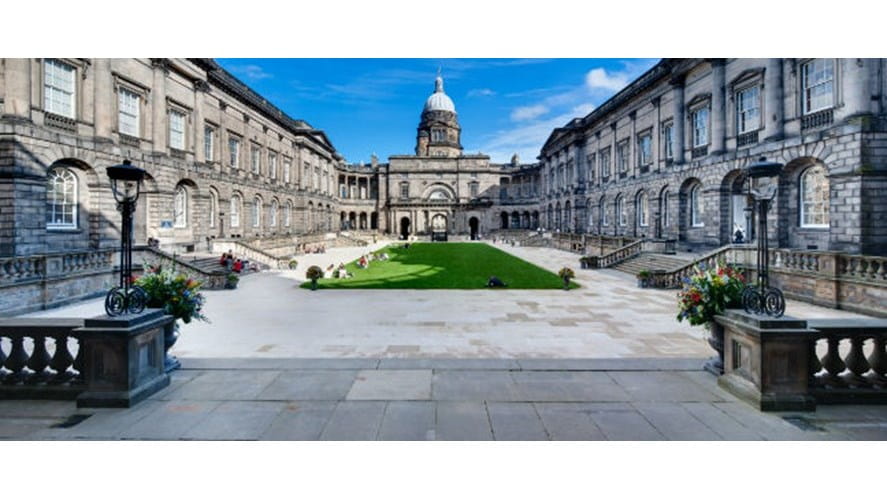Look to the future with BIS Houston Alumni Finley, now in his 4th year studying Medicine at the University of Edinburgh.

Look to the future with BIS Houston Alumni Finley, now in his 4th year studying Medicine at the University of Edinburgh.
Look to the future with BIS Houston Alumni Finley, now in his 4th year studying Medicine at the University of Edinburgh.
I’m Finley and I’m now in my 4th year studying Medicine at the University of Edinburgh. I left BIS Houston in 2016 (just before you moved to the fancy new campus, which I’m definitely not bitter about at all). Here’s a few words about what I got up to while I was at BIS Houston, what I’ve been doing since starting at Edinburgh, and what I’m looking forward to in the future. If anyone is reading this and wants to know more about applying for uni or Medicine specifically, don’t be afraid to shoot me a message via the school (info@houston.nae.school).
I didn’t really know I wanted to apply for Medical school until the summer after Year 12, after I’d just completed a week at the Muscular Dystrophy Association (MDA) summer camp. This was a really eye-opening experience for me as myself and a number of other “counsellors” were in charge of providing kids and teenagers not much younger than ourselves with a week-long summer camp, adapted to their specific ability and needs (such as needing help with getting changed, washed, eating, etc.). The joy this tough and physical, but very rewarding week brought myself and the campers I was responsible for showed me that I could really see myself providing care to people as a career.
After this I realised I should probably get some more Medicine-related work experience under my belt, because of course applying for Medicine is very competitive. So I volunteered weekly at the Buckner Hospice in Houston - essentially a care home for elderly people with terminal illnesses such as end-stage cancer and dementia. This really broadened my perspective on the range of different people I would come into contact with in Medicine (going from children with genetic-inherited disorders to very elderly people whose cognition has started to decline). It also got me accustomed to the concept of death as, unfortunately, some of the residents I spoke with at the hospice passed away during my time there. I think this was a good experience to have prior to starting Med school as death is something that is spoken about a lot in lectures and unfortunately happens a lot in hospitals and in the community which Doctors and everyone else in the health care team have to deal with.
Studying Medicine has been challenging at times, but all University degrees have their challenges. I’ve never thought of myself as studying a particularly hard degree as it’s really just lots of stuff to remember rather than having to apply your skills of maths or creative writing (both of which are not my forte) in order to get by! What I do think about Medicine as a degree though is that those who study it are very lucky. A typical day of uni for me since I’ve started doing my clinical rotations could look something like this:
9am: Go on a ward round with a cardiology consultant and have them watch me take a history from or examine a patient, so that I can get more comfortable with doing what I’ll be doing for the rest of my career, and then have them immediately feedback to me what I did well and what to do to improve, so I’m able to learn from the experience straight away. Not often at uni that you get a professor to give you feedback less than a minute after a piece of work.
11am: Practice taking blood from real-life patients who need their blood taking anyway. “Don’t worry I’ve done this before.”
12pm: Go for lunch with mates.
1pm: Watch some open heart surgery standing next to the surgeon. I’ve also been able to scrub-in (where you get completely sanitised and put on the surgeon gown, gloves, visor and everything) for surgeries fixing people’s shattered bones and put screws in which will help them walk again - all the while being quizzed by the surgeons so I’m constantly testing my knowledge for exams.
3pm: Go to the Med school library (which also happens to be at one end of the hospital so I don’t even have to leave the building to travel anywhere) to consolidate some knowledge. You can always get a seat there as only the Med students know about this library!
6pm: Go home, eat, and have a nice cold pint because it’s a Tuesday - I mean Friday.
Although that timetable seems pretty full, my first 3 years were much less time-intensive and not every day is spent like that. I’ve still had time for extra-curricular activities such as joining the rowing team in 1st year. Me and a group of other guys went from complete novices to competing at Henley - not bad in under 9 months. I’ve not tended to fill my time with much medical extra-curricular stuff as I feel like I get enough Medicine during the day.
Looking to the future, I’m trying to keep my mind open to any path of Medicine that might catch my interest; but currently I think I’d like to become a GP as the way they get to really get to know their patients and follow them through their life seems like something I’d really enjoy.
Thanks for reading if you got this far, good luck with your future no matter what you do.